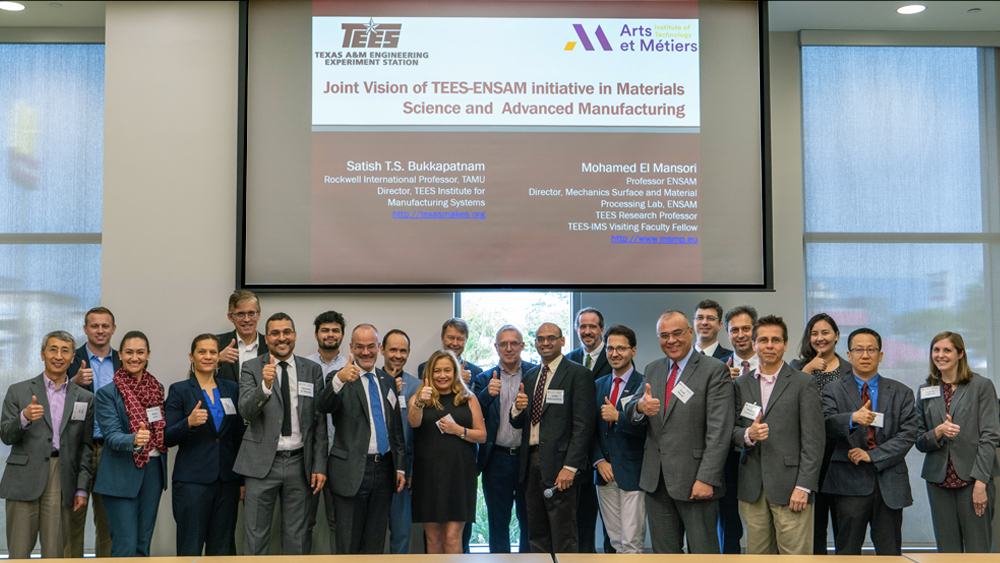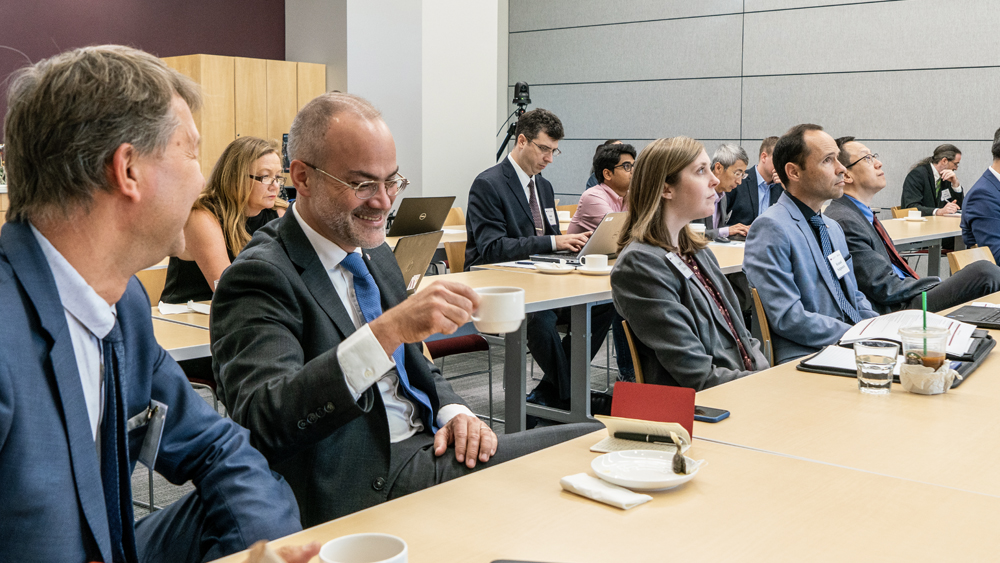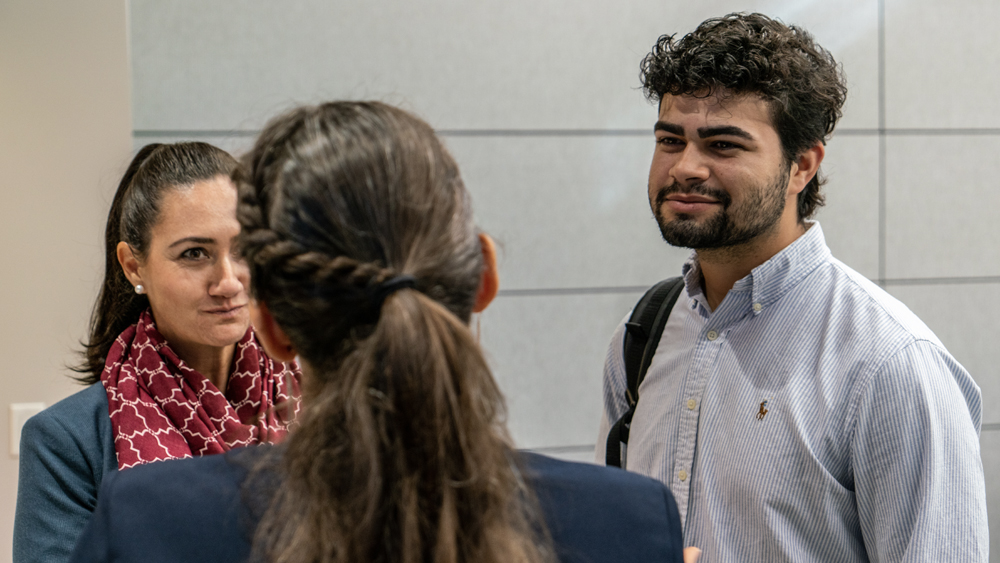
Texas A&M University hosted the third workshop for the transatlantic partnership between the Texas A&M Engineering Experiment Station and Arts et Métiers Institute of Technology, jointly referred to as the AM2 partnership. The workshop, held Oct. 16-18, built on the two before it in hopes of presenting the vision for the AM2 Consortium on Industry 4.0, which seeks to strengthen this partnership and advance technology surrounding artificial intelligence and data science for smart manufacturing in the future.
“Two years ago, the president of France, Emmanuel Macron, launched a national strategy for artificial intelligence in context of the European Union as it is key for the sovereignty of our nations and states,” said the honorable Alexis Andres, consul general from the French Consulate in Houston. “However,” he continued, “in order to have a successful strategy, you need to have adequate training, progressive research and companies that excel in this area. France cannot succeed in such a challenge alone.”

But ushering in progress to a global manufacturing industry has been challenging since companies do not share data with one another, so collaborative solutions are rarely developed with any efficiency.
“Share your data, and you will be stronger,” advised Ivan Iordanoff, vice president of research and innovation at Arts et Métiers Institute of Technology. “Of course, data is high value, so I understand the impulse to protect it.” Iordanoff proposed a relaunch of the AM2 innovation pillar to bring together industry giants, as well as small-to-medium enterprises, technological providers and startups. “We have 3,000 years of scientists and good knowledge of what we want to simulate,” he said. “Now we need to determine how to collect data securely so that we can actually use our knowledge.”
The French government has launched a plan called Open Data, meant to make more data accessible by categorizing what kind of data it is, based on whether it should be available to the wider public, certain companies or no one at all. “For example, all data relating to health of citizens should not be made available publicly,” said Andres. “We need to be very clear on what can be used with artificial intelligence and development efforts.” The opportunity to discuss such topics is one of the many benefits of collaborating with so many professionals from academia and industry in attendance at this workshop.
We have 3,000 years of scientists and good knowledge of what we want to simulate. Now we need to determine how to collect data securely so that we can actually use our knowledge.
“Since November 2017, we have been making significant progress toward forging a strong academia-industry partnership to address the emerging scientific, technology and workforce development challenges for industry, especially in the context of advanced materials and intelligent manufacturing,” said Satish Bukkapatnam, professor in the Department of Industrial and Systems Engineering at Texas A&M, director of the TEES Institute for Manufacturing Systems, and co-lead of the AM2 initiative.

The AM2 partnership is of immense strategic benefit to both France and the U.S. because it seeks to effect change to a global manufacturing industry through extensive research collaborations, education programs, and mutual faculty and student exchange initiatives that serve to elevate the AM2 partnership as well. Over 100 Aggies and Gadz’Arts (students at Arts et Métiers) have participated in AM2 global programs, with Aggies spending time in France and Gadz’Arts in College Station.
“The Arts et Métiers and Texas A&M partnership is a great example of how powerful the synergy of research and education can be,” remarked Maria Alves, senior director of Halliburton Engineering Global Programs at Texas A&M. “Besides the great research collaboration solving problems that are relevant to the manufacturing industry around the world, this partnership also allows our students to develop a global understanding of the engineering industry and the skills needed to lead in the global industry and society.”
Texas A&M is a tier-one research institution and among the top 10 engineering programs in the United States, boasting over 35 faculty members with a focus on manufacturing, and Arts et Métiers Institute of Technology is one of the most reputable engineering programs in France.